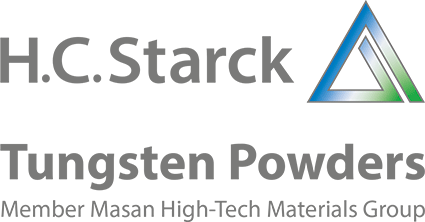H.C. Starck Tungsten Powders develops new technology to recycle cobalt
Goslar, April 15, 2021 – H. C. Starck Tungsten Powders, a subsidiary of Masan High-Tech Materials, is researching a new process for recycling cobalt from scrap metal at its site in in Goslar. Within two years, the development project is intended to lead to a pilot process that can then be scaled up. The German state of Lower Saxony has contributed €800,000 of funding to this innovation.
For decades, H.C. Starck Tungsten Powders has recycled tungsten – primarily from scrap carbide – using its own processes, thereby meeting a significant portion of the raw material needs of the company’s largest production site in Goslar. This scrap also generally contains between five and 20 percent cobalt.
H.C. Starck has expertise in recovering cobalt, as for many years until 2003, the Goslar site processed a three-digit annual tonnage of secondary raw materials into high-purity cobalt oxide and cobalt metal powders. The aim of the current innovation project is to replace the traditional process – which is made up of several different dissolution, electrolysis, precipitation, extraction and cleaning steps – with a considerably more efficient process comprising fewer production steps. The project also aims to reduce environmental impact, such as by lowering energy consumption.
“Our market positioning is based particularly on our innovative power and technological expertise,” says Dr. Julia Meese-Marktscheffel, head of global research and development at H.C. Starck Tungsten Powders. “Our comprehensive experience in metal recycling is now helping us create an innovative approach that allows us to sustainably recover another technology metal from secondary raw materials available on the market. This differentiation also reflects the strategy of our parent group Masan High-Tech Materials, which aims to develop into a leading global supplier of high-tech advanced materials critical to global innovation.”
The EU classes cobalt as a “critical raw material”. As well as acting as a ductile binding matrix in carbides, it is also used in lithium-ion/polymer batteries, meaning it plays an important role in electric vehicles, a key industry of the future. The most important source country for the primary raw material is the Democratic Republic of Congo, responsible for around 65 percent of cobalt mined worldwide.
Download press release

